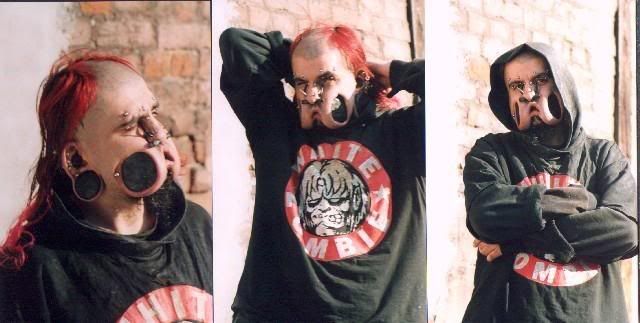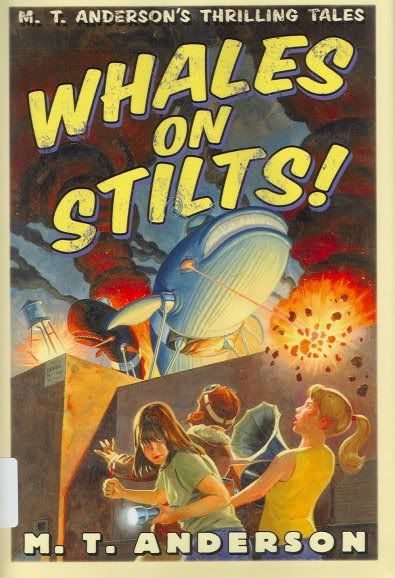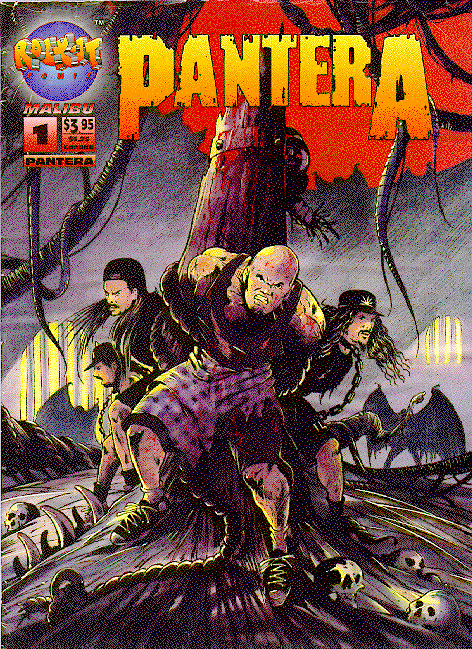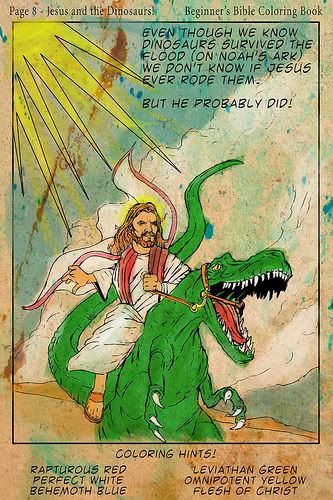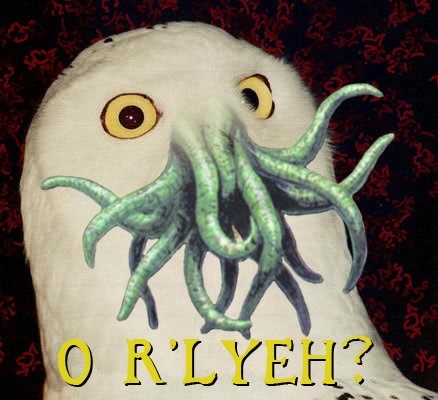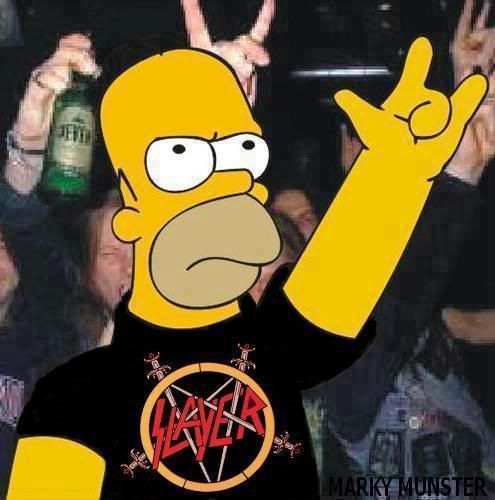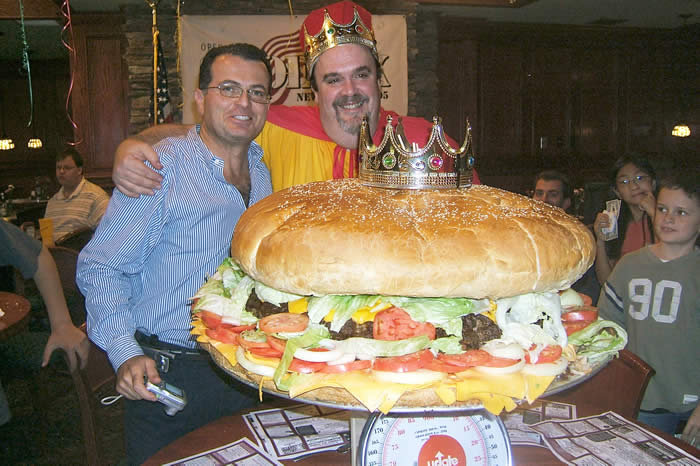Friday, October 26, 2007
Quotent Quotables vol. 4
- F. Scott Fitzgerald
Wednesday, October 24, 2007
Quotent Quotables vol. 3
- Matt Cale, from his review of Julie Taymor's Across the Universe.
Tuesday, October 23, 2007
I Dunno, Just a Thought Vol. 20
For Halloween I am going to be my Id. essentially the costume is a cross between Mr. Blonde, David Hess, Sleepytime Gorilla Museum, and the Joker as he appears in the graphic novel Arkham Asylum. this is the first time in like ten years that i've dressed up for Halloween so i'm trying to make it a good 'un.
Started work on my first screenplay. Title is The House Behind Her Body. influences include;
- the aforementioned Arkham Asylum Graphic Novel
- Cannibal Holocaust
- Subconscious Cruelty
- Richard Stanley's original screenplay for The Island of Dr. Moreau.
The story is about an inmate uprising at the Iris Thatcher Memorial Asylum. It's going to be bloody and uncomfortable and disorienting...the idea of "inmates taking over the asylum" in extremis, taken to as far a level as one can envision. think the prison riot episode from the first season of Oz crossed with the more hallucinogenic moments Ken Kesey's One Flew Over the Cukoo's Nest, with some Jorodowsky imagery and European Splatter thrown in for good measure.
i dunno... just a thought.
Thursday, October 18, 2007
We are the Sprocket Holes vol. 6
30 Days of Night - 5/10:
Plot?
..... no Plot.....
well... it looked like the graphic novel, but as far as my girlfriend and I can tell it wasn't even remotely the same thing as the comic. tons of stuff left out, characters missing, new characters that are useless, and too much changed. was the head vampire in the movie supposed to be Marlowe or V? cause he said things and did things that both those characters did in the comic, but seeing as how he was the only vampire that talked (and in some made up language that ALSO was no where to be found in the book) while the others just snarled and shrieked and stood around looking creepy and gory. that's my number one gripe with the film; the dumbing down of the vampires themselves. in the book they're animalistic, but also surprisingly sophisticated and adept. they communicate with each other. in the film, they're just broadly drawn movie monsters; between vampire and zombie. the movie tried way to hard with the human drama and subplots that weren't in the book, turning into a generic "trapped in a small space" horror/thriller with an interesting concept but little more backing up the concept, save for some cool visuals. a colossal disappointment on almost every level.
Hot Fuzz - 8/10: Edgar Wright is a fucking genius. you can tell this film was made by someone with a deep love and appreciation for the films he lampoons. a little bit long, but a great cast, great (and surprising) gore FX, and mentally hilarious.
Corrupt - 5/10: nonsensical crime thriller starring Harvey Kietel in something of a precursor to his role in Abel Ferrara's neo-grindhouse classic Bad Lieutenant. John Lydon (yes...THAT John Lydon) in in this for some reason. boring, humorless, and pointless stuff.
House on the Edge of the Park - 8.5/10: extremely tense and mean spirited revenge/torture film from Ruggero Deodato (director of the infamous Cannibal Holocaust). obviously intended to invoke Last House on the Left (title of the film, David Hess playing the main antagonist, the theme of ordinary people being pushed to commit horrible acts of violence and is it ok if there is is a "point" to the acts (in this case; retribution), and occasionally improbable in spots...none the less this is one of those films that fucks with you on a cerebral level as well as a visceral level...the great thing about it being that it doesn't appear to be trying to do so...it's just that intense of a film.
Friday the 13th parts 3 (3D!!!!!) and 4 - 6/10 (both): at a certain age you realize how fucking BORING these films are. part 4 is the stronger of the two only because of Crispin Glover in all his nonsensical awkward glory and an ending that is also that. the girls are cute and the gore FX are cool, but damn these movies are dumb. only watch these movies with your friends so you can get some MST3K action going on.
Doom Generation - 4/10: jesus jumping dog shit...who comes up with this stuff? makes Natural Born Killers look subtle and understated. the sardonic vampire beauty of Rose McGowan makes the film somewhat tolerable for a while...until she opens her mouth and has to say these lame-ass valley-girl-from-hell insults. i don't really feel like saying more.
3 Extremes - 9/10: 3 short Asian Horror Films; Fruit Chan's Dumplings, Park Chan Wook's Cut, and Box from Takashi Miike. Box is definitely the strongest of the three; haunting, beautiful, and poetically nightmarish. Dumplings is also one that will stay with you for a while...does for Chinese Cuisine what Texas Chainsaw Massacre did for BBQ. Cut is the funniest and most misanthropic of the three, but compared to the bookends it's a bit of a weak link.
the Manson Family - 10/10: this is fucking IT. the movie that Natural Born Killers should have been. perfect mix of true crime, gruesome exploitation, and cautionary bleakness. goes where many of the books, specials, and films about the subject haven't gone, either because they're afraid or because it's not as sensational as the "myth". perhaps it isn't, but this film gives the humanity, the humility, and the reality back to the killers and the victims, making it even more disturbing.
the Pillow Book - 8.5/10: one of the strangest, most sensual films ever made. Vivian Wu is one of the sexiest women you've never heard of. she's certainley come along way (and apparently in a lot of ways...nyeah) since playing the mousy girlfriend of a superhuman man boy in the Guyver. couples out there...this movie will get you laid. even with the graverobbing and corpse skinning....if you watch this movie in the day, you will be fucking that night.
Monday, October 8, 2007
We are the Sprocket Holes vol. 5
Island of Lost Souls
by David Hughes
(Originally appeared in The Greatest Sci-Fi Movies Never Made, 2001)
| "I look about me at my fellow men, and I go in fear. From The Island of Doctor Moreau by H. G. Wells |
It can scarcely be said that any of the horror stories to come out of Hollywood in the past century come close to matching the real-life horror of the making of The Island of Dr. Moreau. For Richard Stanley, writer-director of the cult horror films Hardware and Dust Devil, it was a nightmare that began with a dream. Stanley had been virtually a lifelong fan of H. G. Wells's classic novel, in which a ship-wrecked sailor washes up on a South Sea island only to find it populated by ghastly human/animal hybrids created by early genetic genius Moreau. But the director felt that neither of the previous cinematic adaptations - The Island of Lost Souls, Erle Kenton's subversive 1933 adaptation starring Charles Laughton, and Don Taylor's execrable 1977 version with Burt Lancaster and Michael York - had done justice to Wells's prophetic fable which, originally published in 1896, was first banned for being blasphemous and later repudiated by its own author. Accordingly, Stanley set out to try his own hand at turning one of his favourite books into a screenplay worthy of both its subject matter and its illustrious history. He succeeded.
While still embroiled in legal and political wrangles over his second feature, Dust Devil, which had foundered on the rocks when British independent Palace Pictures had gone down in stormy financial waters in 1992, Stanley completed a screenplay that, over the next four years, would become one of the hottest talent-magnets in Hollywood.
Firstly, Oscar-winner Marlon Brando agreed to take the title role, his commitment to the project seemingly as much due to his liking for Stanley as for the script itself. Brando fan Val Kilmer, revelling in his newly-minted box-office status following the success of Batman Forever, was next up to bat, taking the role of Edward Prendick, the shipwrecked civil rights lawyer who becomes the first outsider to discover the horrific nature of Moreau's work on the island. Kilmer was followed by an impressively credible and eclectic supporting cast: Northern Exposure star Rob Morrow in his first major film role; Fairuza Balk (Things To Do In Denver When You're Dead); Ron Perlman (The City of Lost Children); Hammer femme fatale Barbara Steele; and Stanley film veteran William Hootkins (Hardware).
For Stanley and New Line, the film's financiers, all the ingredients seemed perfect. And yet, just as Dr Moreau's genetic experiments had succeeded only in creating life, not humanity, so the beautiful creature Stanley and his fellow believers had envisioned began to change, shedding the man who had devoted four years of his life to the project after only four days, and rapidly mutating into a lumbering, artless, soulless vegetable that it might have been kinder to destroy. As Moreau himself might have asked as he stood among the ruins of his experiments, "What went wrong?"
According to Stanley, the problems with The Island of Dr. Moreau were evident long before even a single frame of film had been shot. Just weeks before shooting was scheduled to begin in Queensland, Australia, Stanley was suddenly informed that Kilmer, who had just been served with divorce papers by wife Joanne Whalley-Kilmer, wanted his commitment to the project - and therefore his role, the film's lead - reduced by forty per cent. "He really put me in an impossible situation," Stanley recalls bitterly. "You spend years loving a book and then somebody says 'Well, chop [these scenes].' I said 'You're crazy, I can't do it, I'm not going to lose them.' And that all helped to push me down the plank towards the point where they shoved me off."
Faced with having to reduce his leading man's screen time by an impossible degree or lose his star altogether, Stanley hit upon the idea of switching Kilmer's role with Morrow, who had been cast as Montgomery, Moreau's assistant on the island, a part not only some forty per cent smaller than that of Prendick but arguably more suited to Kilmer's personality. In his place, Rob Morrow would be moved into the role of Prendick. "It was a vain triage suggestion that didn't save me," Stanley explains, "based on the presumption that if Kilmer walked out, it would be perceived as my fault. Essentially, I had to find a way of keeping Val on board. I couldn't have him walk, because if he did, he would have probably collapsed the project. And that would have been the end of me anyway." Kilmer agreed to the compromise, but the famously difficult actor - who had previously clashed with Tombstone director George P. Cosmatos and whom Batman Forever director Joel Schumacher called "childish and impossible" - was still not satisfied and he resolutely refused to give his time to even the most perfunctory rehearsal. "His line was always just, 'Be there for me and I'll give you the moment'," Stanley says, "but a lot of the other cast members need to rehearse to know what they're doing."
The problem was exacerbated by the scheduling of the shoot itself, which allowed no time for even a table reading of the script. "It was all stitched up in such a way that there was no available time," Stanley recalls. "Brando wasn't due to arrive until later, so people would turn up on set, and that would be the first time you'd meet them. The first time I'd seen Fairuza [Balk] in a number of months was in the middle of a hurricane on a beach at Cape Tribulation, and it was like, 'Hi, how are you doing? Action!'" Worse still, Kilmer himself failed to materialise at all for the first two days of shooting, a stunt apparently so typical of the actor that an agent at Creative Artists Agency, which represents both Kilmer and Stanley, allegedly told the director that "every Kilmer project loses the first two days". On the third day, when Kilmer did finally show, it was clear that not only did he not know his lines, he did not even appear to know which scene he was supposed to be in. Although one actor on the set recalls that Kilmer recited "lines written for other characters, in other scenes," Stanley remembers it differently: "He'd do [the lines], but he'd throw it all away."
"So there you are," says Stanley, recalling those first, shipbound scenes, "tossing around in the sea; nobody else in the cast knows what's coming and everyone's trapped in this situation where the best you can do is stick multiple cameras on it - which are all kind of static - and see what happens. Of course," he continues, "the moment you roll, it [becomes] rushes, [but it's] the equivalent of raw, unrehearsed material, with everyone stumbling into each other and Val saying anything. No one knows how to respond to it and everyone's confused. And this fairly miserable material filters back to Los Angeles, [where] everyone watches it and says, 'What's going on here? They're not doing the script!'" As a result, Stanley received a message on the fourth day of shooting saying that he was officially "relieved of his duties." The project he had spent four years of his life perfecting had been taken away from him, a victim of the very talent his script had attracted in the first place. "That doesn't matter," says Stanley. "The script is just a lure. They don't actually want or need a script to shoot the movie, they need it to draw the talent. Once the talent's on board, the script gets thrown over your shoulder and it's time to do something completely different."
Did Stanley get the feeling that Kilmer was deliberately trying to sabotage the shoot? "Possibly. I think maybe Val does it the whole time, that [he] might always automatically throw his weight around the first few days. I've heard very few reports from Heat or The Doors - I'm not sure how he responded to Michael Mann or Oliver Stone - but I understand it was much the same with Tombstone and [others]." Stanley suggests, however, that if Val had behaved in a similar fashion with a more prominent or powerful director, things would probably have been different. "I mean, I'm not sure anyone would have fired Oliver Stone after three days, so I can't help feeling it's more the company's fault than Val's. I feel that I would have been able to contain Val had I had the support of the company behind me. I'm not convinced that New Line ever really understood the script, and I'm not sure anyone ever really tried." Although Stanley shouldered the blame, New Line head Michael De Luca publicly blamed himself. "I didn't give [Kilmer] a strong director," he admitted, "and that was my fault." Stanley also blames De Luca, but for different reasons. "Mike was the one that insisted that I go out to sea on the first day," he explains. "[But] the weather was extremely bad, [the wind] averaging thirty or forty knots, and we were tied to a stinking, creaking freighter which gave us no ability to move the camera. It was terribly hard to actually get a shot under those conditions."
Soon after Stanley left the production, Rob Morrow also moved on, escaping to the safety of a commitment elsewhere. "One of the reasons that Rob left was [that he'd] done his homework," says Stanley. "[He had] read the Wells novel and the script, and was prepared to try quite hard. In the pathetic rushes that did leak out, Rob is trying quite hard, which I found quite a shame because he would potentially have been a good Prendick had he actually been allowed to deliver a performance." Stanley suspects that Morrow saw that the production was doomed. "The first few days were a relentless nightmare; nothing was going right," he says. "And it was also plain that Val was going to carry the day and [that] none of us had any chance of countermanding him. Rob was still a lightweight in terms of his box-office value, as were Fairuza Balk [and] myself. We were all basically little people."
With Stanley having left The Island, closely followed by Morrow, New Line needed not only to find a new director but a new leading man. Filling the former vacancy was veteran film-maker John Frankenheimer (The Manchurian Candidate), who agreed to step in at short notice - as he had previously done on The Birdman of Alcatraz and The Train - on the proviso that he would be allowed to alter the story. "I wasn't really excited about doing it," he told Cinescape at the time. "I did it because I liked the idea of working with Marlon Brando. And I thought it could represent a very commercial movie for me, which I need at this point in my career." Morrow's role, meanwhile, would be filled by British actor David Thewlis, whose startling turn in Mike Leigh's Naked had led to a number of higher profile roles in such studio films as Dragonheart. "The irony is that Thewlis was one of the people on my wish-list right from the start," Stanley reveals, "but whom they would never have let me have [because] they didn't want the lead guy to be British."
No sooner had production begun again, with Frankenheimer now calling the shots, than Kilmer clashed with the replacement director. "I don't like Val Kilmer, I don't like his work ethic, and I don't want to be associated with him ever again," Frankenheimer told Entertainment Weekly soon after shooting wrapped. It must have been a relief to Frankenheimer that Kilmer's part had been reduced to a supporting role. "If they'd had to put up with Val in every shot of every day, they'd have had a real [problem]," Stanley suggests. Nevertheless, Thewlis found him easy to work with. "I actually like Val," he told Cinescape. "I know he gets a lot of bad press, but I like him a lot. Sometimes [people] can want a little bit of control and want [their] own way... and not have an idea in their head. The fact is that Val wants the control, but he has some great ideas."
Kilmer, for his part, says that his reputation for being difficult was borne out of his insistence on perfectionism. "If people want to try and trash me, that's fine," the actor told Midweek. "I have no interest in getting caught up in mudslinging contests. I'm only interested in the work and I'm sorry if some people find that a difficult concept to live by. I'm not easy to work with if the work is going badly," he added, "but in the end the film is better, my performance is better, and the audience gets their money's worth. I don't care if I finish last in the Mr Popularity competition." The actor also shrugs off bad press as an occupational hazard. "Every actor has to put up with it," he added. "It's part of the price we pay for being celebrities and the fact that it's image and not art which drives the market for movies. If [the press] find a way to smear you in print, they'll do it and there's nothing you can do about it except wait for the shitstorm to roll over. My job is to give the best performance as an actor that I can and I've always fought for art over garbage."
If Kilmer felt that he had become a sort of all-purpose whipping-boy for the press, Stanley found himself in a similar situation with the producers, becoming the victim of a number of malicious rumours - among them that he was planning to return to Queensland and burn down the set, the result of an ill-advised but casual joke made to a crewmember. "I started getting weird phone calls from New Line's legal department and my agent," Stanley says. "They'd suddenly become terribly afraid that I would attack the cast or the main compound or whatever, which quite offended me because, of course, I would never do anything which could be construed as malicious towards my cast and crew. [But] even though I was getting telephone calls in Sydney - very rudely - at three and four in the morning [from people] on American time, I couldn't convince them that the prefix for the number at which they were calling me was thousands of miles away from where the shoot was going on."
Other equally scurrilous stories began to spread, including one told to Brando - who had yet to arrive in Australia - that Stanley had gone crazy on the set, assaulted a member of the crew and even punched his girlfriend, Kate. "Of course, Brando's immediate response was to phone Kate and say, 'Is this true?'" Stanley says. "She said, 'No, of course not!' So he knew [even] before he arrived that everyone was lying to him." Feeling that he had become the scapegoat - "an all-purpose boogeyman" - for the production's myriad problems, Stanley understandably felt the need to set the record straight, particularly with Brando, for whom he had the deepest respect. "Although I had left peacefully at the time, as a result of the huge amount of disinformation that had started pouring out I eventually turned around and decided to go back up to Queensland," he explains. "I had been heavily warned by everyone that if I came anywhere near the set I'd be sued for trying to disrupt the shooting, so it became obvious that if I did go, I'd have to do it incognito. I believe there were even people watching the airports to see if I was on any of the flights, and there were security guards in unmarked cards showing up outside places they thought I would go. One actress reported that there was a security guard waiting in her driveway in a car with the lights off because he'd received some tip-off that I was going to show up there."
Stanley skirted the security set up by New Line and eventually found Brando, who had, by this time, had his own clashes with the wayward Kilmer. Angry at his co-star's misbehaviour, in particular his frequent non-appearances on set, Brando had arranged for his trailer to be moved away from Kilmer's and had, according to Entertainment Weekly, told the younger actor, "Your problem is, you confuse the size of your talent with the size of your paycheck." Perhaps unsurprisingly, Stanley found Brando sympathetic to his plight. "I put my case [to him]: that I would never have harmed anyone [and that] any stories about me trying to threaten or harm the cast or Val were just wish-fulfilment. [Brando] very sweetly offered to pay me off," he says, touched by the recollection, "you know, he offered me a chunk of money, which I, of course, refused."
Once Stanley was happy that he had cleared his name with Brando, he decided to take a break from the increasingly insane world in which he found himself, heading into a section of unbroken rainforest with a close female friend. "[We] lived out in the woods for a few weeks with food, coconuts and mangoes on the trees, good sunlight and fresh water," he says, "I was given a couple of dingo pups to look after by some feral, and kind of went native for a while. We pretty much forgot about the world and refused to have anything more to do with the shoot." Then, after a couple of weeks in the forest, the feral film-maker was surprised to find a group of former Dr. Moreau crewmembers who, having been fired by Frankenheimer, were camped just downriver, ready to exact their revenge. One of the campers was Lewis, who had the distinction of having been fired twice from the production. "Lewis had started as a carpenter working on Moreau's house," Stanley recalls, "and he'd been fired for standing round thinking too much, which tells his story! He then got re-hired as a driver." Unfortunately, he adds, when "the shit hit the fan" and everyone was trying to leave the mess behind, Lewis was caught trying to help Fairuza Balk to escape. "She ran away with him," he says, "but they only got as far as Sydney [before] they caught her and put her on a plane back to Queensland, and fired Lewis for the second time."
Thus it was that with the aid of other former Dr. Moreau crewmembers, each with a grudge against the production, a cunning plan was hatched around the campfire. One of the actors on the film had managed to appropriate one of the beast-man costumes, the 'melting dog-man', from Stan Winston's workshop, on the pretext that it was for a prank at the hotel. Now, it was decided, Stanley would attempt to get himself re-hired on the production as an extra playing one of the 'beast-people'. Having already procured the costume, Stanley would not have to report to make-up or wardrobe, and would naturally be familiar enough with the movie to know what he was required to do in order to keep up the ingenious deception. Although Stanley chooses not to go on record confirming the specifics of the ruse, one of the prank's alleged participants explains, "He would black himself out and put on the bulldog face and hands, sit in his car until all the extras were called, then just go on with the rest of the beast people."
Now that Stanley had found a way to observe at close hand Frankenheimer's efforts to complete the film, he found the veteran's directorial approach very different to his own. "They were making it up as they went along," he says succinctly. "Everyone was desperate. The most commonly spoken line on the shoot was, 'I don't know.' As in, 'What are we shooting today?' 'I don't know.' 'What time is Val arriving?' 'I don't know.' 'Is Brando coming today?' 'I don't know.' There was so much disunity within the basic shoot," Stanley adds, "that a lot of the Australians among the crew - even some of the ADs [assistant directors] - actually knew I was there, but my presence inside the compound was kept secret from the Americans. So, despite what New Line and Frankenheimer [said later] - that they knew I was there and that it was all a joke - they actually had no idea at all."
There were close calls, however. One night, Stanley was spotted talking to fellow beast-person, Ron Perlman, who, having sworn never again to be filmed in prosthetic make-up after four years as Linda Hamilton's co-star in Beauty and the Beast, had agreed to do it once more for Stanley, a director he very much admired. "He'd consented to play the Sayer of the Law, just because the part was so loaded to start off with," Stanley says proudly. Now Perlman was angry, because during four series of Beauty and the Beast, he was only asked to put on the make-up once without it being shot, whereas on Dr. Moreau, he was filmed only once for every five times he got made up. "The rest of the time," Stanley says, "he'd put it all on, come to the set and stand around, with no lines and nothing to do, go home again and take it off without doing anything. This went on for weeks."
"The particular night I got spotted," he recalls, "I was talking to Ron when word came on set that Val had decided he couldn't come again. He'd thrown another number, so shooting was cancelled for the night. This was typical for the whole shoot," he adds. "Every time Val would throw a tantrum, the strong line that Frankenheimer took with him was that he'd close down shooting, which to me was incredible because you'd be standing there with Ron, Temeura Morrison, Marco Hofschneider, Fairuza Balk, David Thewlis and Marlon Brando, and they'd close down shooting because of Val. They had so many good people there, and a good crew, you'd imagine they'd be able to shoot something. Anyway, at that moment, Ron, who was trying to learn his lines, said, 'God, what's the point of learning this then?' and made a big gesture of tearing up the script and throwing it down. It drew people's attention, [and it] was the last time I came on, because after that rumours start to fly that I was actually there..." So was Stanley, in effect, present more often than Kilmer, the film's supposed star? "Probably not," he says with a smile, "but when they were shooting on the boats, I was having a fairly good time sitting on the beach with binoculars, watching them floundering around in the distance!"
As word filtered back to the US and Britain about the increasingly bizarre nature of events occurring in Australia on The Island of Dr. Moreau shoot, Stanley made the difficult decision not to go to the press with his story. "At the time, an agreement was struck with New Line whereby, if anyone asked what had happened, we would just shrug and say 'creative differences' and let it go. I actually kept my end of the bargain, [but when] Mike De Luca or New Line started saying, 'We should have had a stronger director,' or, 'Stanley's rushes didn't cut together,' I felt moved to try and actually set the record straight in some way." Nevertheless, Stanley feels that what happened really was his fault, because he should have been in control of the circumstances. But how could he hope to control those circumstances without the backing of the studio making the film? "I blame the system," he says wryly. "The auteur theory has always been largely hype, but it was rammed down my throat when I was growing up [and it] gave me a lot of wrong ideas about the power of the individual. With Dr. Moreau, the company was always much more in charge than I [was].
"As soon as it goes over a certain budgetary level, you're in the hands of the company. As much as anything else - the bad weather, the flu epidemic, the car crash I had on the morning of the first day, Val and everything else - I think that the budget did a lot of the damage. When it hit $35 million, my position started to become untenable [because] unless you're Steven Spielberg or James Cameron, they're not going to say 'yes' to you. They're going to say, 'It has to be this way, kid - the waist-high field of marijuana plants has to go, the animal sex has to go, you can't have the female lead cooked and eaten.'" Stanley feels it might have been prudent to attempt to raise money for a lower-budget version of the story, "but I was always kind of stuck because of the eighty creatures, the tropical location, and so on." He does believe, however, that a great deal of money could have been saved in the areas of make-up and special effects. "Unfortunately," he jokes, "by the end everyone was just running off with bundles of money under each arm - including myself!"
The demise of Stanley's vision of The Island of Dr. Moreau as "a really slick, epic, voodoo gothic horror movie on a grand scale", has left the film-maker with a number of regrets, the most painful of which is that the potential to create a truly unique genre movie - with the added bonus of a great performance from Brando - has been lost forever. Nevertheless, he points out, "one must never forget that [The Island of Doctor Moreau] is actually a very fine novel by H. G. Wells, and it's been filmed twice before, which means that I was attempting another remake. So, right from the start I was taking something which was somebody else's and which I didn't own. I had never at any point owned the rights, which were passed down for a long time from AIP to Orion, then ended up in New Line's hands. I was there basically to do my version of it, [but] they then removed me from it [and] ended up with something very akin to the [1977] AIP. The only thing they got from me is my cast."
"Where it all becomes a real tragedy," he adds, "is that Val didn't mean to do what he did. If someone says, 'Oh, we'll move everything from your sight that troubles you, sir,' then one automatically behaves that way. One can't really fault the guy for being a bit of an asshole." ("He's not an asshole," Fairuza Balk told The Face. "He never did the things they said he did.") Stanley now believes that Kilmer was simply doing what thousands of stars before him have done - exercising his right to behave like a star. "I believe that [he] was just trying to demonstrate who the top dog was, to show how much power he had and make the cast jump through a couple of hoops, so they'd behave in future. What he didn't realise was that by getting rid of me, he also gave the company the chance to finally turn it into the movie that they really wanted to [make]."
Certainly, Frankenheimer grasped the opportunity to make the film he wanted to make, as he admitted to Cinescape. "I didn't like the horror film aspect of it or the spoof aspect of it, [so] I did change the script quite a bit." Indeed, comparing Stanley's original draft to Frankenheimer's shooting script is as futile and frustrating as trying to find more than a passing resemblance to Wells's novel. The word which occurs most frequently in the shooting draft is 'OMITTED' - it is, in fact, the very first word of the screenplay. "They changed everything that was any good," Stanley says, "starting with the main character. [He] originally had the same name as the character in the Wells novel, which I felt strongly about because everyone always changes Prendick's name, because it's such a silly name - you know, you can't have a lead called Prendick... [But] I thought, well, people in real life have silly names, so I'd rather have him called Prendick and make him precious about it, and have everyone else make fun of him. They call him 'Prawn-dick' for most of the way in the original draft and generally treat him quite badly. Of course, as soon as I was gone, they changed his name to Douglas, which they thought was more manly."
Frankenheimer also changed Prendick's profession, removing reference to his work as a human rights lawyer for the United Nations, a conceit Stanley had invented because he felt that a character whose life was devoted to defending the civil rights of oppressed peoples would have a field day with Moreau. "Then, after Moreau dies, he is ironically cast in the role of lawgiver and has to sort things out for the beast people. In the original draft," Stanley says, "it was going to turn into a kind of piss-take on Yugoslavia or Somalia, where the man from the UN did extremely badly and succeeded in messing things up even worse for the people he was trying to protect." All of this was lost in Frankenheimer's version of the script, revised with the assistance of TV movie writer Ron Hutchinson (Fatherland, Against the Wall) and uncredited contributions from Walon Green (The Wild Bunch). "So although Thewlis is a very fine actor, he's playing a very conventional character called Douglas who is just a heroic castaway."
Stanley had also taken a leaf out of William Golding's Lord of the Flies, setting the story at a time when a limited nuclear exchange has broken out in the rest of the world, an intriguing premise which was not part of the original novel but which provided the cornerstone of Stanley's update. "So even when Prendick reaches the island, there's an issue as to whether there's an outside world left. The beast-people [become] like the cradle of civilisation, and were potentially what was going to come next in the evolution of the species. And of course," he adds, "Moreau was diligently working on a replacement species for Man."
Frankenheimer made other significant changes. The problem, Thewlis suggested, was that "people didn't really know what kind of film they wanted to make. It was such a mixture of styles.. The original script Richard wanted to make was more spoofy, and then I think it became an action-horror film." Says Stanley, "It [was] blanded out, changed, and basically watered down. Thewlis's character is now the clearcut good guy with no negative qualities, and Moreau is more of a textbook bad guy than he was meant to be, either in the Wells novel or in my draft. On top of that, ironically, the extremes of unpleasantness are gone, [so that] even though they've got more obvious bad guys, all the genuinely unpleasant stuff that happened in the script has gone, including the graphic demises of almost all the cast. I was heading towards a much tougher third act, which just isn't there at all in any respect. I mean," he adds, "nobody gets cooked and eaten!"
What is arguably most surprising about the final cut of the film is the number of apparently critical elements of the Wells story missing in Frankenheimer's version, the best examples of which are the sidelining of the 'Saying of the Law' - perhaps the most memorable part of the novel - and the complete omission of the infamous 'House of Pain', no longer even mentioned in the shooting script. This, Stanley suggests, is like attempting an adaptation of George Orwell's 1984 but leaving out Room 101. "He's dropped so many things which you would have thought no one could ever have dropped; things that were part of the Wells novel and which I think are some of the strongest things in the story." Frankenheimer, understandably, is disinclined to agree: "What we made, I think, is a moral fable that asks, 'What goes wrong when you just let scientists go unchecked?'"
For most of those close to the production, the more pertinent question was, "What goes wrong when you just let actors go unchecked?" Even Brando, no stranger to Hollywood's more outlandish excesses - having played supporting roles in Superman and Apocalypse Now - recognised during shooting that the film was probably beyond salvation. As Thewlis told Cinescape, "Marlon described the film at one point as trying to do a crossword puzzle while plunging down an elevator shaft. Then he qualified that and said, 'It can be done, it just takes a lot of concentration.' That was pretty accurate." After the film opened in September 1996, struggling to a $40 million world-wide box-office take, Thewlis was more forthcoming, admitting to Premiere that malting The Island of Dr. Moreau was "a terrible time. I went to rushes because I didn't know what was happening. Richard Stanley is the only one who has gone public. I would be sued." Reviews were withering, led by Variety who described the film as "an embarrasment for all concerned."
Stanley likens the making of his first feature, Hardware, to a child delivered by forceps, its skull slightly crushed in the course of pulling it out so that it ends up deformed or brain damaged. "It was mine," he says of his début, "but it was kind of dumb and mad, though still very active," he says, enjoying the analogy. "I guess Dr. Moreau was more like a bucket job, in that it came straight out of the womb and into the shredder."
Wednesday, October 3, 2007
Quotent Quotables vol.2
- Tool frontman Maynard James Keenan on those who site Tool as an influence.
Tired of Haulin' Oats! vol. 4
Cryptopsy - Blasphemy Made Flesh
Rasion D'etre - the Empty Hollow Unfolds
SPK - Leichenschrei
Arkhon Infaustus - Orthodoxyn
Asunder - Clarion Call
Bauhaus - In The Flat Field
Crisis - the Hollowing
Fear of God - First E.P.
Fields of the Nephilim - Dawnrazor
Flipper - Blowin Chunks
Genesis - Genesis
Lickgoldensky - Lickgoldensky
Lungbrush - Old School New School
Missing Foundation - Demise
Portal - Outre
Rabies Caste - Let the Soul Out and Cut the Vein
Red Harvest - Cold Dark Matter
Ringworm - the Venomous Grand Design
Rites of thy Degringolade - Totality
Scorn - White Iris Blind
SSD - Power
the Wolfgang Press - Birdwood Cage
Utuk Xul - The Goat of the Black Possession
Vorkuta - Into the Chasms of Lunacy
LPs;
Bad Brains - I Against I
Neutral Milk Hotel - In the Aeroplane Over the Sea
7 inches;
Crom-Tech - Crom-Tech
Looking for an Answer/Zanussi split
Tuesday, October 2, 2007
Brainmares Vol. 1
- my brother, my father, some old friends from the neighborhood, their parents, and I participate in one of those Toys R Us shopping sprees. my brother and I are a team and our cart is packed to the brim with Batman and Wrestling action figures.
- Watch a movie where a muscular dude with a spiky blond mullet fucks a Penelope Ann Miller-type on a table top. she's wearing a black bra and matching lace panties. at some point the dude sneaks a rather large jackhammer behind P.A.M. and does her with the jackhammer. at first we and her have no idea what's going on...the lighting is very dark...but there is an aura of menace permeating. the dude looks blank. at some point he turns on the jack-hammer...at a low speed. P.A.M. doesn't scream...she is too confused and horrified and perhaps mad with enjoyment. eventually things gets a little rougher and louder. she eventually falls off the table and the dude is standing there with the jackhammer, witch is coated in blood. She lives, but is nearly catatonic.
- Go to a fashion show that's being held in a crawlspace in my old elementary school. I'm there with *****. she tells me she wants to be with me. one of her friends is one of the models...the first one. the friend looks like Shannyn Sossaman from Rules of Attraction. anyway i tell ***** that i'm with someone else. Later i run into ******* ******, who i had a crush on my senior year of high school. she tells me the same thing ***** told me. ******** looks amazing, with long brown hair falling around our faces once she gets close...i feel like i'm falling into her face at that point. i entertain the notion of being in two relationships before waking up.
think that's it.

